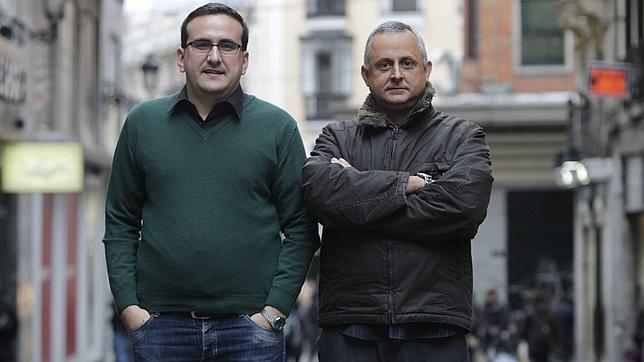
Veiga, González leave Espacio Laical; what’s next for Cuban dialogue?
HAVANA – Open to the plurality of thought present in Cuban society; bold in some of its proposals, whether or not we agree with some of them, but bold and therefore a motivator of opinion, obligatory reading for everyone who prides himself in his citizenship and makes an effort to exercise his rights, the magazine Espacio Laical [Lay Space] has lost two pillars of the most up-to-date Catholic thinking.
Roberto Veiga and Lenier González, editors of a publication whose circulation does not exceed 4,500 copies but multiplies readers to an incalculable figure as it passes from hand to hand, have left their posts.
The two were the great promoters of the publication by the Catholic laity, one that has been a benchmark in the history of Church publications. Was it the voice of the entire lay community? I have no answer, but I say that it responds to the thinking of many lay people to whom it helped enter the dynamics of the national reality, where the magazine stirred concerns and motivations.
It was even more, because it opened itself to contributions from practitioners of other religions, as well as personalities without a religious creed.
Espacio Laical made itself available for the debate of ideas, many of them clearly contradictory. Its pages gave space to thinkers who ranged from Marxist intellectuals like the late Alfredo Guevara to the founder of the Ladies in White, Mrs. Miriam Leyva.
Numerous Cuban intellectuals and academicians, members of official institutions, have expressed their analyses and opinions there. Also, personalities interested in the restoration of capitalism wrote in it, or had their lectures — delivered at the Felix Varela Center — transcribed and published.
To the fields of academia, culture and national intellect, the publication has made praiseworthy contributions. It has filled a vacuum, regardless of any discrepancies its readers may have had with some of the works and concepts printed therein.
Others, on the margin of ideology, support it with a utilitarian vision: “Let’s see if the nation’s leaders realize how much we need another medium,” said to me long ago a renowned creator who owns an entire collection of the magazine.
With a limited circulation that is amplified by the Web, Espacio Laical assuages a bit the hunger for good reading that Cuban society experiences. It fills its pages with ideas, not prattle. As I see it, Veiga and González have been neither circus seals applauding whatever happens nor scandalous hypercritics.
The plurality of ideas exposed, existent and expressed plainly on street corners of our homeland is not pleasing to vertical structures. And the Catholic Church is as vertical a structure as the Communist Party.
Precisely this quality was underscored by Alfredo Guevara in one of the lectures the magazine published (which was the equivalent of discovering warm water.) The necessary horizontality of an organization, no matter which it is, demands the horizontality of an exchange of differing ideas, a counterpoint.
In my opinion, the departure of Veiga and González responds to and reflects the mentality that has managed to prevail at the highest levels of the Cuban Catholic Church, a situation foretold in this blog after the takeover of the Church of Charity in Havana, before the [March 2012] visit of then-Pope Benedict XVI.
At that time, I wrote that such an occupation, done by a small group of oppositionists, not only attempted to rarify the climate during the Papal visit but also sought to alter the correlation of forces at the core of the Conference of Catholic Bishops of Cuba (COCC), to the detriment of the existing pastoral leadership (which is nothing more than the Church’s political-action line) conducted by Cardinal Jaime Ortega Alamino.
Afterward, the Cardinal, during a lecture at Harvard University, [April 2012] answered a question in an unfortunate manner, although what he said was an awesome truth. The target of a campaign unleashed by the media, Ortega Alamino was as helpless as a centerfielder during a power outage at Latinoamericano Stadium. He received only one letter of support from two bishops, both of them members of his Archdiocese. The COCC has 16 bishops. Consummatum est.
You might wonder what this has to do with Espacio Laical. The magazine was promoted by the Cardinal to reflect, among other Church objectives befitting the lay community, the pastoral line of dialogue, aperture and “critical support” for the process of actualization, i.e., reforms that the Cuban government is carrying out.
This line of work, in my opinion, could have gone one of two ways: either a national disaster, or critical support for the reforms, while encouraging greater speed for them and wider openings. The success of the Church’s mediation in the process of liberation of imprisoned oppositionists and their willing departure from the island with their relatives was clear to see.
Cardinal Ortega, who upon his 75th birthday (date of retirement) received from Benedict XVI an extension that apparently is due to expire in the next few months, will have to leave his post at the Archdiocese. While the identity of his replacement will be important, the key lies in the mentality that will prevail in the COCC.
Hopefully, it will not differ much from the line adopted by Ortega in terms of how to face the challenge of a country in a process of change.
Veiga and González deserve respect for being consistent, not accommodating. Had they chosen to be accommodating, they wouldn’t have stood in the crossfire. To the new editors I wish success because I perceive that the times ahead will not be easy for them.


